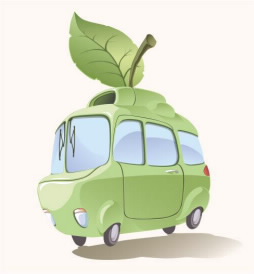A new research presented at a meeting of the American Chemical Society by the scientists from Brazil indicates that body of cars can be made from pineapple or banana fibers.
The researchers have formulated an efficient method to convert the fibers of pineapple, banana and other plants into ecologically-friendly plastics that are lighter and stronger than the currently utilized plastics.

According to Alcides Leão, the leader of the research group, though the fibers known as nano-cellulose fibers are made from soft fruits such as pineapple and banana they are super strong in strength and durability. Some of the eco-friendly fibers have the toughness of Kevlar, the material utilized in the making of bulletproof vests and armor. Dissimilar to Kevlar and other traditional plastics that are manufactured using natural gas or petroleum, the nano-cellulose fiber plastics are recyclable. Leão explained that the bio-plastics are 30% lighter than the normal plastics but are stronger by three to four times. The bio-plastics can be utilized the manufacture of car parts such as side panels, bumpers, dashboards and others. The nano-cellulose fiber products while assisting in reducing the car weight will also help in augmenting their fuel efficiency. Moreover, the reinforced plastics also provide mechanical advantages such as increased resistance to damages from heat, splashed gasoline, oxygen and water.
Though the wood fibers were used in the production of paper for centuries, the discovery and use of nano-cellulose fibers is a recent discovery. The nano-cellulose fibers are produced from wood after an intensive processing. The fibers are so small and around 50,000 such nano-fibers can be accommodated in the width of a single strand of human hair. Like any other fiber material such as carbon, glass and others, the nano-cellulose fibers can be mixed with raw materials utilized in the production of durable reinforced plastics.
The production process of the nano-cellulose fibers is elaborate and costly but single pound of such material is enough to manufacture over 100 pounds of reinforced plastics. Leão visualizes that the nano-cellulose fibers currently focused in the manufacture of reinforced plastics for use in automobile sector may in future be utilized to substitute aluminum and steel automotive parts.
The project received funding from the Brazilian government, Comercio, Toro Industria and Pematec and other companies in the private sector.